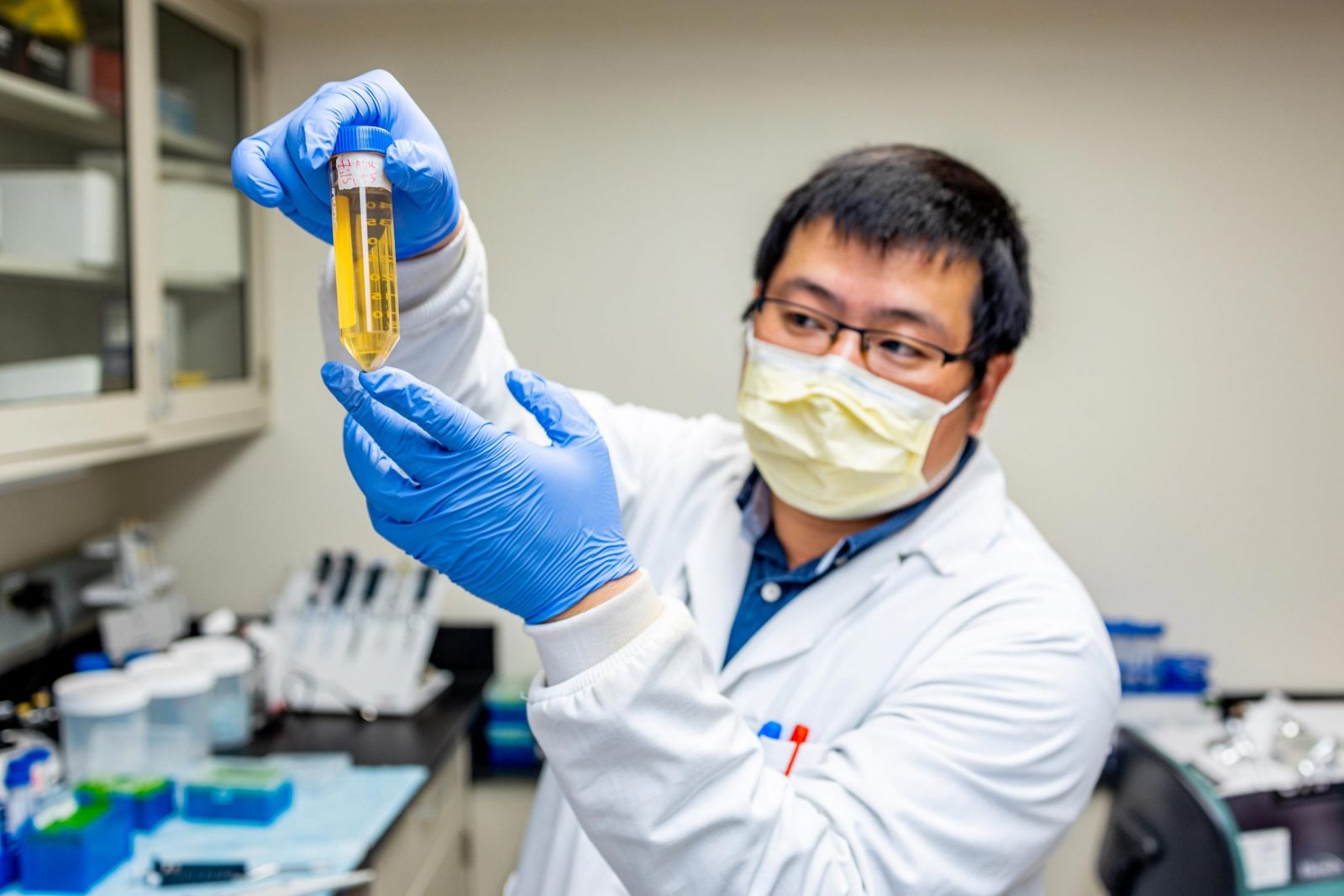COVID-19 Drugs: University of Pittsburgh Claims Breakthrough With Ab8 A Tiny Antibody Component That Is Able To Neutralizes The SARS-CoV-2 Virus
Source: COVID-19 Drugs Sep 14, 2020 5 years, 4 months, 2 weeks, 1 day, 16 hours, 27 minutes ago
COVID-19 Drugs: Researchers from the University of Pittsburgh School of Medicine claim to have isolated the smallest biological molecule to date that completely and specifically neutralizes the
SARS-CoV-2 coronavirus.
.jpg)
The research findings were published in the journal: Cell
https://www.cell.com/cell/pdf/S0092-8674(20)31148-X.pdf?_returnURL=https%3A%2F%2Flinkinghub.elsevier.com%2Fretrieve%2Fpii%2FS009286742031148X%3Fshowall%3Dtrue
The identified antibody component, which is 10 times smaller than a full-sized antibody, has been used to construct a drug known as Ab8 for potential use as a therapeutic and prophylactic against SARS-CoV-2.
The study team reports that Ab8 is highly effective in preventing and treating SARS-CoV-2 infection in mice and hamsters. Its tiny size not only increases its potential for diffusion in tissues to better neutralize the SARS-CoV-2 coronavirus, but also makes it possible to administer the drug by alternative routes, including inhalation.
Most importantly, it does not bind to human cells ie a good sign that it won’t have negative side-effects in individuals.
The drug Ab8 was evaluated in conjunction with researchers from the University of North Carolina at Chapel Hill (UNC) and University of Texas Medical Branch (UTMB) at Galveston, as well as the University of British Columbia and University of Saskatchewan.
Co-author Dr John Mellors, M.D., chief of the Division of Infectious Diseases at University of Pittsburgh School of Medicine told Thailand Medical News,“Ab8 not only has potential as therapy for COVID-19, but it also could be used to keep individuals from getting SARS-CoV-2 infections, acting as a kind of prophylaxis”
He further added, “Antibodies of larger size have worked against other infectious diseases and have been well tolerated, giving us hope that it could be an effective treatment for patients with COVID-19 and for protection of those who have never had the infection and are not immune.”
The identified tiny antibody component is the variable, heavy chain (VH) domain of an immunoglobulin, which is a type of antibody found in the blood.
The antibody component was found by “fishing” in a pool of more than 100 billion potential candidates using the SARS-CoV-2 spike protein as bait. Ab8 is created when the VH domain is fused to part of the immunoglobulin tail region, adding the immune functions of a full-size antibody without the bulk.
A newly formed University of Pittsburgh School of Medicine-backed company, Abound Bio has licensed Ab8 for worldwide development.
Dr Dimiter Dimitrov, Ph.D., senior author of the
Cell publication and director of Pitt’s Center for Antibody Therapeutics, was one of the first to discover neutralizing antibodies for the original SARS coronavirus in 2003.
In subsequent years, his study team discovered potent antibodies against many other infectious diseases, inc
luding those caused by MERS-CoV, dengue, Hendra and Nipah viruses.
The antibody against Hendra and Nipah viruses has been evaluated in humans and approved for clinical use on a compassionate basis in Australia.
Currently clinical trials are testing convalescent
plasma which contains antibodies from individuals who already had COVID-19 as a treatment for those battling the infection, but there isn’t enough plasma for those who might need it, and it isn’t proven to work.
This is the reason why Dr Dimitrov and his team set out to isolate the gene for one or more antibodies that block the SARS-CoV-2 virus, which would allow for mass production.
In February 2020, Dr Wei Li, Ph.D., assistant director of Pitt’s Center for Therapeutic Antibodies and co-lead author of the research, began sifting through large libraries of antibody components made using human blood samples and found multiple therapeutic antibody candidates, including Ab8, in record time.
A team at University of Texas Medical Branch’s Center for Biodefense and Emerging Diseases and Galveston National Laboratory, led by Dr Chien-Te Kent Tseng, Ph.D., tested Ab8 using live SARS-CoV-2 virus.
It was found that at very low concentrations, Ab8 completely blocked the virus from entering cells.
With those results in hand, Dr Ralph Baric, Ph.D., and his University of North Carolina at Chapel Hill and his colleagues tested Ab8 at varying concentrations in mice using a modified version of SARS-CoV-2.
It was found that even at the lowest dose, Ab8 decreased by 10-fold the amount of infectious virus in those mice compared to their untreated counterparts.
Significantly Ab8 also was effective in treating and preventing SARS-CoV-2 infection in hamsters, as evaluated by Dr Darryl Falzarano, Ph.D., and colleagues at the University of Saskatchewan.
Dr Sriram Subramaniam, Ph.D., and his colleagues at the University of British Columbia uncovered the unique way Ab8 neutralizes the virus so effectively by using sophisticated electron microscopic techniques.
 Dr Wei Li, Ph.D., of Pitt, demonstrates a step in the process of
Dr Wei Li, Ph.D., of Pitt, demonstrates a step in the process of
obtaining a potential drug against COVID-19. Credit: UPMC
Dr Mellors who is also Distinguished Professor of Medicine, who holds the Endowed Chair for Global Elimination of HIV and AIDS at University of Pittsburgh added, “The COVID-19 pandemic is a global challenge facing humanity, but biomedical science and human ingenuity are likely to overcome it. We hope that the antibodies we have discovered will contribute to that triumph.”
However other medical experts are warning that it is still too early to comment on its effectiveness and safety till it is tested in proper controlled human trials. They are tons of other drugs and compounds that have demonstrated effectives against the SARS-CoV-2 in vitro and animal models but never made it through human trials.
For more on
COVID-19 Drugs, keep on logging to Thailand Medical News.
.jpg)
